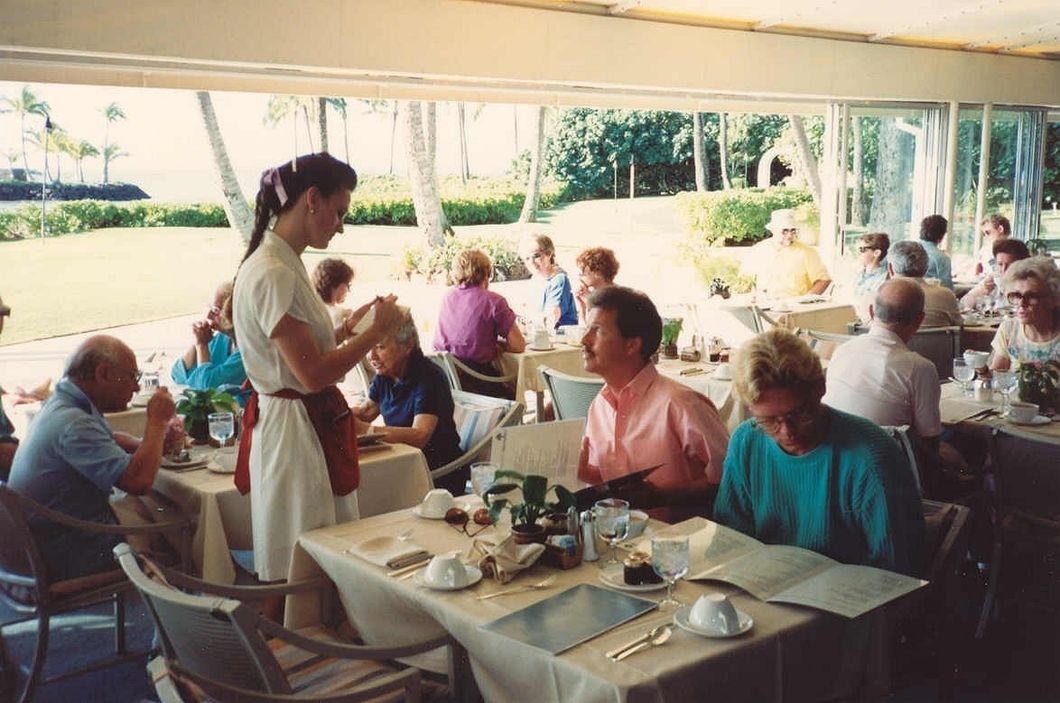This summer I find myself working in the customer service industry like many other college students do. I have worked in the same role for two summers now so the job is not unfamiliar to me. Greet customers with a smile and a welcoming hello as they come in, be patient as the customer makes their decision, and keep in mind that no matter what, the customer is ALWAYS right.
However, as I returned to work this summer, I realized that I need to start being more mindful of the people I am serving, even more so than before. The week I started was the same week Starbucks closed its stores for an afternoon to have diversity trainings for their employees. This mandated training was organized after two Black men were arrested in a Starbucks in Philadelphia.
With these events on my mind, it caused me to begin thinking of ways I could improve the way I interact with customers in order to make the overall experience of the customer, and myself, as positive as possible.
The main way I have gone about improving the way I deliver customer service is by simply being mindful, being conscious of how my actions could have unintended perceptions or consequences.
I think for a long time we have gotten into a rut of "treating others the way we would want to be treated," as a form and practice of respect. I know this is how I was taught as a child. But in a changing and ever-diversifying America, this catchphrase may be becoming too limited and narrow. We should absolutely treat others as though we would want to be treated, but what happens if the other person prefers not to be treated as we would?
What happens when a customer's appearance triggers me to greet them using female pronouns when this customer actually prefers to be referred to using, "they/them" pronouns or some other set of pronouns?
Obviously, we can't all go around with pins indicating our preferred pronouns in order to guarantee that everyone receives a personalized experience but we can at least be mindful and conscious that maybe using typical gender pronouns could make someone uncomfortable.
I think mindfulness and awareness is one of the most important things that can be done to make restaurants, cafes, stores, any public place more welcoming and inclusive. If we all have it on our minds to keep in mind that sometimes we may have to treat people differently than the way we would want to be treated out of respect for that other person we can make a difference.
Some people have questioned whether or not what Starbucks did by closing their stores for four hours on a Tuesday afternoon really could have any long-term change. I think doing something, and something as drastic as shutting down all stores to have conversations on this topic is much better than nothing. What Starbucks did on May 29th was just one small piece in a much larger puzzle that has no picture that can be used as a reference.
As we come to terms with our changing world we are going to be building a puzzle piece by piece of how to embrace, accept, celebrate and serve diversity. The company that I work for does not do diversity and inclusion training in its onboarding process, but quite frankly we should. Every company should have these trainings, whether or not employees are working face to face with customers or not.
In the meantime though, until more companies acknowledge the importance and necessity of diversity and inclusion trainings, employees should take it upon themselves to be more conscious on an individual level. You can take an implicit bias test to gain a better understanding of how your unconscious thoughts may be affecting your actions. You can simply slow down when interacting with co-workers and customers to recognize differences.
For me, what having a larger consciousness of my customers has done for me is allowed me to realize how diverse of a community I am in. For a while, I perceived the area as being primarily white and affluent, which it is certainly, but my customers are more than only white and affluent. In opening my eyes a bit wider, I can celebrate that there is growing diversity, while still recognizing there can always be even greater diversity and there should be.
But that is another can of worms.
For now, though, I can treat everyone how they want to be treated and how they deserve to be treated.





 Lumiere figure at the Disney Store at the Ala Moana Shoppi… | Flickr
Lumiere figure at the Disney Store at the Ala Moana Shoppi… | Flickr








 StableDiffusion
StableDiffusion StableDiffusion
StableDiffusion 10. Extra BlanketsJuwenin Home 100% Cotton Knitted Throw Blanket
10. Extra BlanketsJuwenin Home 100% Cotton Knitted Throw Blanket StableDiffusion
StableDiffusion StableDiffusion
StableDiffusion File:Kishlaru familie.jpg - Wikimedia Commons
File:Kishlaru familie.jpg - Wikimedia Commons Photo by Hanna Balan on Unsplash
Photo by Hanna Balan on Unsplash StableDiffusion
StableDiffusion black blue and yellow round illustrationPhoto by
black blue and yellow round illustrationPhoto by 





 woman holding glass jar
Photo by
woman holding glass jar
Photo by 








